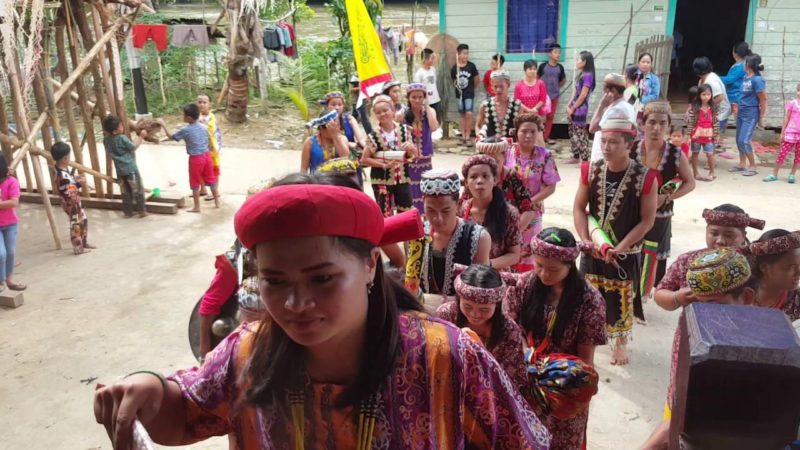During the UN climate negotiations in Bonn last November (COP23), country representatives worked in close collaboration with indigenous peoples to turn the Local Communities and Indigenous Peoples platform established at the UN Climate Change Conference in Paris (COP21) into reality.

According the UN’s Intergovernmental Panel on Climate Change, Indigenous and traditional knowledge represents a “major resource for adapting to climate change,” particularly because indigenous peoples care for around 80% of the world’s remaining biodiversity. Besides, local communities and indigenous peoples bear the brunt of climate change impacts and have demonstrated a wide range of ways to engage with the United Nations’ climate process in recent years.
Addressing Indigenous leaders during COP23 in Bonn, the Executive Secretary of UN Climate Change Patricia Espinosa said: “Indigenous people must be part of the solution to climate change. This is because you have the traditional knowledge of your ancestors. The important value of that knowledge simply cannot – and must not – be understated. You are also essential in finding solutions today and in the future. The Paris Climate Change Agreement recognises this. It recognises your role in building a world that is resilient in the face of climate impacts.”
The platform will help share the valuable knowledge of local communities and indigenous peoples to fight against climate change and its impacts, and ensure their views are heard in the climate negotiation process. It will also enable fuller and more effective exchanges of knowledge between governments and indigenous peoples and local communities, by strengthening the knowledge, technologies, practices and efforts of local communities and indigenous peoples related to addressing and responding to climate change, as well as facilitating the exchange of experiences and enhancing engagement of indigenous peoples and local communities in the UNFCCC process.
Juan Jintiach, representing indigenous communities in the Amazon, described the negotiations to launch the platform as, “a way to protect forests and tackle climate change,” and “a victory for indigenous peoples.”
The platform has three core functions to support its objectives:
- Knowledge: the platform should promote the exchange of experience and best practices aiming at applying, strengthening, protecting and preserving traditional knowledge, knowledge of indigenous peoples, and local knowledge systems as well as technologies, practices and efforts of local communities and indigenous peoples related to addressing and responding to climate change, taking into account the free, prior and informed consent of the holders of such knowledge, innovations and practices;
- Capacity for engagement: the platform should build the capacities of indigenous peoples and local communities to enable their engagement in the UNFCCC process. The platform should also build the capacities of Parties and other relevant stakeholders to engage with the platform and with local communities and indigenous peoples, including in the context of the implementation of the Paris Agreement and other climate change related processes;
- Climate change policies and actions: the platform should facilitate the integration of diverse knowledge systems, practices and innovations in designing and implementing international and national actions, programmes and policies in a manner that respects and promotes the rights and interests of local communities and indigenous peoples. The platform should facilitate stronger and more ambitious climate action by indigenous peoples and local communities that could contribute to the achievement of the nationally determined contributions of the Parties concerned.
Platform Needs Full Participation of Indigenous Peoples to Work
Clare Shakya of the International Institute for Environment and Development also supported the development, but added a caveat, saying: “This is an important step forward but only if it really does mean that indigenous and local communities are listened to and their knowledge recognised.”
The UN’s top climate change official Patricia Espinosa agreed: “We need your voice to understand how this platform best serves the needs of indigenous communities. Furthermore, we need your knowledge to build bridges between indigenous communities and other groups acting on climate change,” she said.
For that purpose, the decision taken at the UN Climate Change Conference COP23 in Bonn recommended that the platform takes into account four principles put forth by indigenous peoples in its future activities:
Full and effective participation of indigenous peoples;
- Equal status of indigenous peoples and country representatives, including in leadership roles;
- Self-selection of indigenous peoples representatives in accordance with indigenous peoples’ own procedures; and
- Adequate funding from the UNFCCC secretariat and voluntary contributions to enable the platform functions.
During the next climate negotiations in April-May 2018, country representatives will discuss modalities to make the platform fully functional. A multi-stakeholder workshop for local communities, indigenous peoples, country representatives and other relevant organisations to discuss the implementation of the three core functions will be the first activity of the platform.
By inviting indigenous peoples organisations to contribute to the climate negotiations, governments underscored their desire for collaborative and constructive engagement with indigenous peoples and local communities. While more work needs to be done in 2018 on refining the modalities of the platform, the progress on the local communities and indigenous peoples platform drew a lot of positive attention at COP23, with six country representatives as well as indigenous peoples representatives expressing their support to the platform at closing plenaries.
For example, Ms. Hindou Oumarou Ibrahim, co-chair of Indigenous Peoples’ Caucus expressed “gratitude to all Parties for their support for this platform,” noting that “it is a positive starting point” and Mr Fremout Geert, representing the European Union was “pleased with the progress on this item – in particular agreeing to the purpose and functions.” Lastly, Ricardo Ulate, representing Costa Rica was “happy with the platform being operationalised, with a roadmap for (its) development.”
